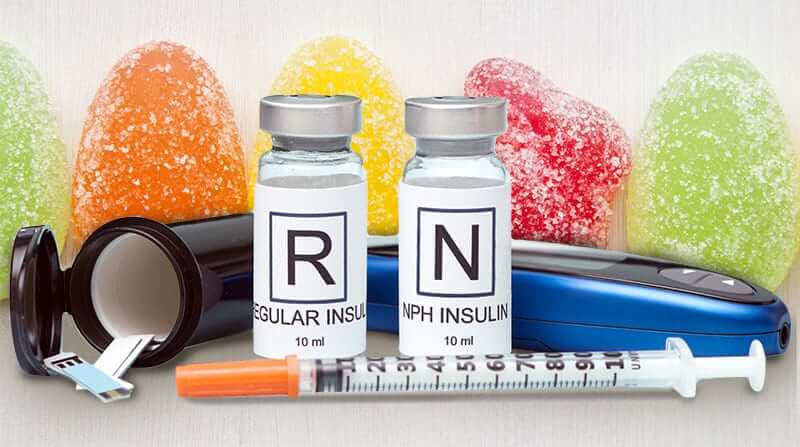Since I first wrote “Nurse Robbie Busts 5 Diabetes Myths,” I continue to hear confusion about diabetes and diabetes management when I work with patients. Here are 5 more diabetes myths.
Did you know that 95% of your care comes from YOU and that is all related to what YOU know and how YOU use the information? There continues to be many myths involved with diabetes and your self-care. Read on, so YOU do not become a victim of these diabetes myths.
MYTH 6 – Using insulin means your diabetes is worse.
FACT: Diabetes is a chronic serious condition even if you use pills, insulin or both. Changing to insulin does not mean you have gone from type 2 to type 1. Changing to insulin does not mean your diabetes is worse. Insulin actually gives you more flexibility adjusting to meal choices, meal times and activity levels. You should discuss all the options for any medication choices with your doctor. All medications have side effects, but diabetes complications are the real danger. With proper knowledge of how to use insulin safely, you will not have a problem.
MYTH 7 – A fat-free diet is a ticket to good health.
FACT: Multiple studies have shown that consuming a diet with moderate amounts of fat, with a higher concentration of mono-unsaturated fats like nuts, seeds, avocado and olive oil can help reduce heart disease and inflammation. Remember, good fats are good for you. However, even the good fats are high in calories, so watch your portions. Saturated fats like whole milk, eggs, meat and regular cheeses, and trans fats in processed foods are responsible for increased cholesterol production and inflammation. Increasing lean protein (fish, chicken) in your diet will also help you feel satisfied (less hunger pangs) and can give you energy for a longer period of time.
MYTH 8 – Aerobic Exercise only counts when you do strenuous exercise 30 minutes.
FACT: Performing ANY activity that increases your heart rate and is sustained for a period of time is considered aerobic (oxygen) exercise. Do activities you enjoy because you’ll stick with them longer and they’ll improve your mood also. Anything is better than nothing. Need to go to the corner store? Ride your bicycle instead of drive. Take a long walk after dinner, or a brisk walk during lunchtime. Play with your children or grandchildren, you’ll both be better for it.
MYTH 9 – You must reduce your body mass index significantly to improve blood sugar.
FACT: A slimmer body size (5-10% reduction) can lower your resistance to insulin or how your body uses its own insulin. Gaining “belly fat” is thought to increase risk of developing insulin resistance. This reduction can improve your cell’s insulin sensitivity and can help improve blood sugar control.
MYTH 10 – “I don’t need to test my blood sugar daily because my doctor tests my A1C every three months.”
FACT: Having your A1C (3-month average) is important but it does not allow for daily variability. Testing your blood glucose level a few times per day will help you keep your blood sugar under control. Uncontrolled blood sugar can lead to cell damage. Food, exercise, medications and illness all impact blood sugar, so the more information you have about your body, the easier it is to maintain healthy blood glucose levels. While you’re testing your sugars, why not also test your blood pressure periodically (about 3 times per week)? High blood pressure (hypertension) can lead to complications including potential for stroke and heart attack. Knowledge is power. With this information about your body, you and your doctor can keep you on a daily regimen that will keep you feeling GREAT!
You are responsible for many daily decisions about your care. Know the facts about diabetes and your health status to help you be the healthiest you can be, you’re worth it!













Leave A Comment